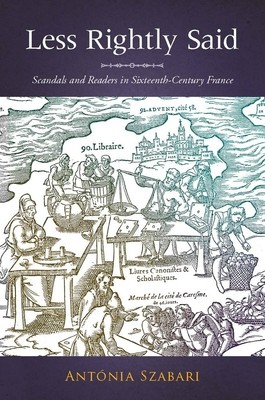
- We will send in 10–14 business days.
- Author: Antonia Szabari
- Publisher: Stanford University Press
- ISBN-10: 0804762929
- ISBN-13: 9780804762922
- Format: 15.5 x 23.1 x 2.3 cm, kieti viršeliai
- Language: English
- SAVE -10% with code: EXTRA
Reviews
Description
Well-known scholars and poets living in sixteenth-century France, including Erasmus, Ronsard, Calvin, and Rabelais, promoted elite satire that corrected vices but spared the person--yet this period, torn apart by religious differences, also saw the rise of a much cruder, personal satire that aimed at converting readers to its ideological, religious, and, increasingly, political ideas. By focusing on popular pamphlets along with more canonical works, Less Rightly Said shows that the satirists did not simply renounce the moral ideal of elite, humanist scholarship but rather transmitted and manipulated that scholarship according to their ideological needs. Szabari identifies the emergence of a political genre that provides us with a more thorough understanding of the culture of printing and reading, of the political function of invectives, and of the general role of dissensus in early modern French society.
EXTRA 10 % discount with code: EXTRA
The promotion ends in 21d.20:09:43
The discount code is valid when purchasing from 10 €. Discounts do not stack.
- Author: Antonia Szabari
- Publisher: Stanford University Press
- ISBN-10: 0804762929
- ISBN-13: 9780804762922
- Format: 15.5 x 23.1 x 2.3 cm, kieti viršeliai
- Language: English English
Well-known scholars and poets living in sixteenth-century France, including Erasmus, Ronsard, Calvin, and Rabelais, promoted elite satire that corrected vices but spared the person--yet this period, torn apart by religious differences, also saw the rise of a much cruder, personal satire that aimed at converting readers to its ideological, religious, and, increasingly, political ideas. By focusing on popular pamphlets along with more canonical works, Less Rightly Said shows that the satirists did not simply renounce the moral ideal of elite, humanist scholarship but rather transmitted and manipulated that scholarship according to their ideological needs. Szabari identifies the emergence of a political genre that provides us with a more thorough understanding of the culture of printing and reading, of the political function of invectives, and of the general role of dissensus in early modern French society.


Reviews